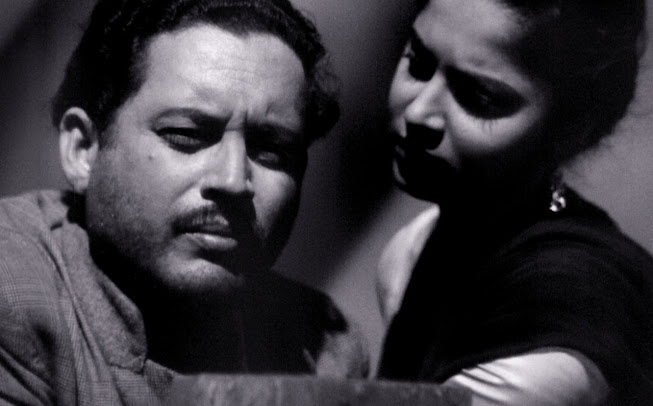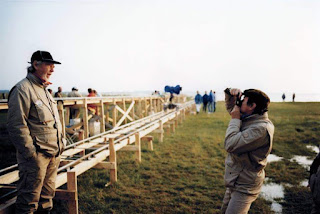Pyaasa (1957), Guru Dutt
Poetry has bequeathed cinema with a whole lot of gifts. In literature, poetry comes out of the heart, reaches for the hands, and gets engrained on the sheets. In cinema though, poetry takes a form that goes beyond the verbal. It becomes universal. It reaches out to sheets yet again, but it takes an inexplicable visual form. Cinema, the medium of poetry on screen, in itself becomes poetry.
This visual form of poetry gave me In The Mood For Love, my favourite film of all time. It gave Edward Yang A Brighter Summer Day. It gave Abbas Kiarostami a Close Up. Andrei Tarkovsky heightened its sheer existence through most of his films. Closer home, Neeraj Ghaywan addressed a lot of pressing concerns through passages of poetry in Masaan. Guru Dutt's masterpiece Pyaasa is, in a way, both- a tremendously distant retreat from the style of these films, yet remarkably personal (and familiar) in its treatment. Has Pyaasa (literally, thirsty) aged? The question persists, even on a rewatch. For one, it's been sixty-four years since it released.
There's the quintessential pre-Bollywood drama that the film is composed of. The melodrama is superfluous, on-the-nose, and the humour is drenched in the kind of obviousness reworking which would be a tragic failure in itself. The love story at its core, the inherent poverty and even the lanes of Calcutta dwell in flowery excesses here. However, the storytelling doesn't come off as heavy. It defies the stretched passages of the succulent and mellow nature of proceedings because the execution is artful and incredibly skilful. Most importantly, the leading character Vijay comes off as a protagonist both searingly authentic in his tragedy and also innately personal for his own creator, Dutt, that is.
Political consciousness isn't what Dutt aims for. He honestly contemplates the perpetual state of unemployment in India which was in the shadows till then. He also analyses the individual effort of an artist to get his art noticed and appreciated. Then, he advances to make his film a telling account of the greed which the capitalist masters of the twentieth century put higher than themselves. If it sounds overbearing, hold yourself because it closes with empathy and pathos, with a very human touch in the very end.
Pyaasa was intoxicating poetry. It won't come again. It stays in its bubble and keeps dispensing Hindi cinema a light that only a few filmmakers with a vision can see. A persuasive, poetic film. Also, perhaps the best of all the Hindi films ever made.





Comments
Post a Comment